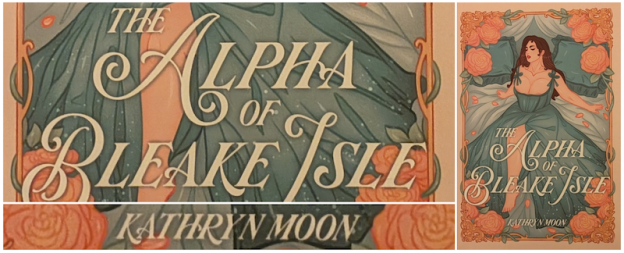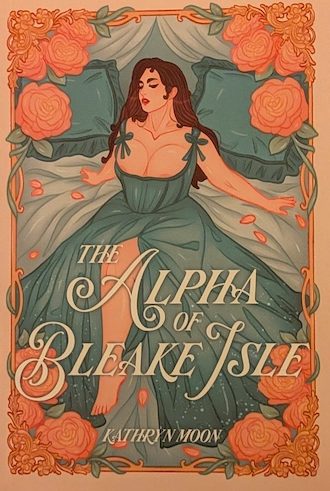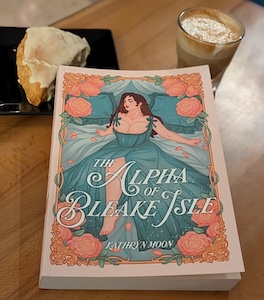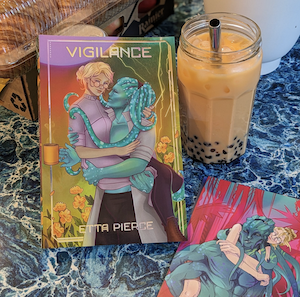Welcome 2026! I read an ARC of An Accident of Dragons by Cheri Radke as my first book of the year. I won an ARC on Instagram.
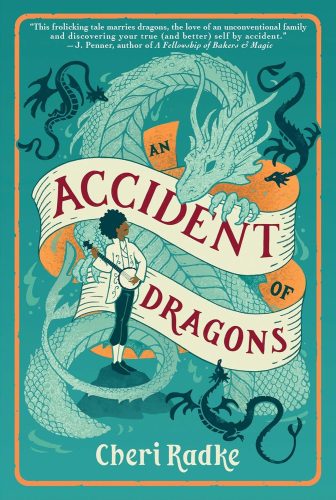
No one would have chosen a Lord Summer so wholly ill-suited for the role—no one except the Dragon of Summer herself, it would seem. An indolent and foppish peacock getting a bit old for his typical charms to play well, Teddy has no doubt that the nobles of Summer find him ridiculous. They all know that the only reason the dragon chose him was on account of his connection to the previous Lord Summer as his, uh, special companion.
Still, as long as Teddy can keep the dragon happy, and her blessings continue to bring peace and prosperity to the Isle of Summer, surely he’s doing well enough. Right?
When Summer lays a rare and highly valuable egg, Teddy’s care-free life threatens to fall apart as the egg’s unexpected appearance dredges up long-repressed memories, and outside forces turn avaricious eyes on the insular island. A mysterious, dragon-worshiping cult covets the egg, and when Teddy bungles a self-interested attempt to give it to them, they sail away with his young daughter instead.
If he hopes to save her, Teddy can no longer afford to ignore how his personal shortcomings are putting his country and the people he loves at risk. To match wits with an ambitious sorceress who presents an unflattering mirror of his own flaws, he must face the reality of just how, precisely, he became Lord Summer.

Oh, I very much enjoyed this. I firmly suspect this book will not be everyone’s cup of tea. The hero is a sartorially flashy, effeminate, over forty, black, gay, ex-whore, who is now heterosexually married with children, has risen in station, and is self-deprecating to the point of unreliability. The Venn diagram of readers who will find something in him to disapprove of is disappointingly large. (Something to keep in mind when looking at ratings of this book, I’m sure.) I, however, am not one of those people. I adored Summer, his dry, acerbic wit, and his willingness to love if given half the chance. He also shows quite a lot of personal growth throughout the book, coming to better understand himself, his past, his current circumstances, and those around him.
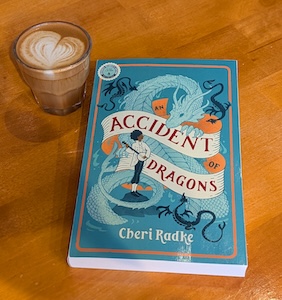 The dragons, however, though essential to the world and story, are given surprisingly little page time. You don’t see a lot of them in the grand scheme of things, which I was sad about. But they serve their purpose well. Also, there were times I wished Radke had given the reader a bit more depth on certain things. Summer didn’t push for answers, so he doesn’t get them. Which means the reader doesn’t either.
The dragons, however, though essential to the world and story, are given surprisingly little page time. You don’t see a lot of them in the grand scheme of things, which I was sad about. But they serve their purpose well. Also, there were times I wished Radke had given the reader a bit more depth on certain things. Summer didn’t push for answers, so he doesn’t get them. Which means the reader doesn’t either.
All in all, I’m hoping there will be more Tales of Summer in the future, and I look forward to reading them.
Other Reviews:

